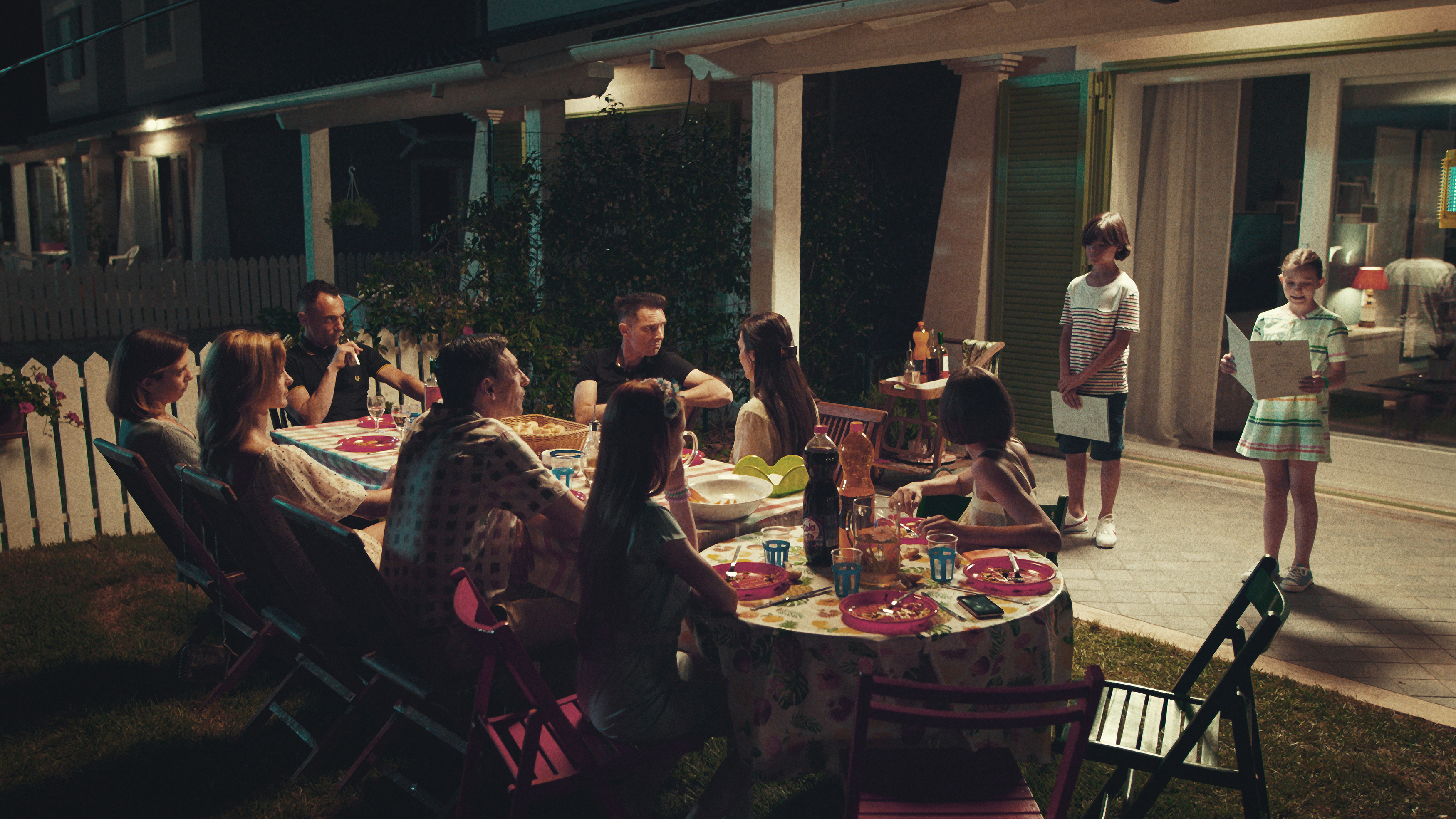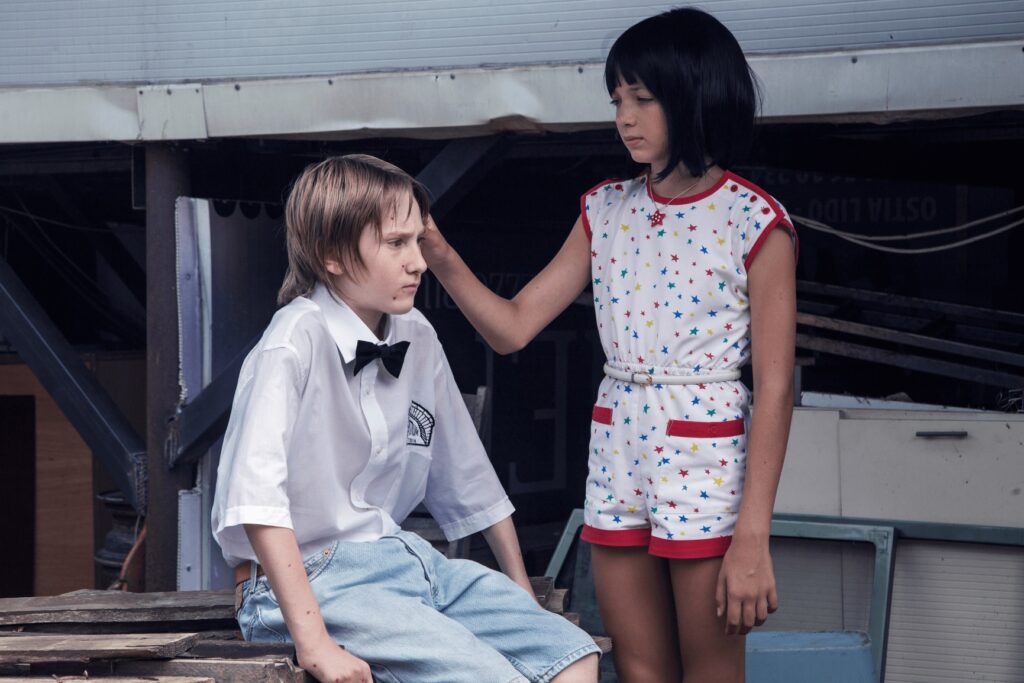Bad Tales is an arresting yet uncomfortable watch that possesses little in the way of narrative coherence.
The latest release from the D’Innocenzo’s, the acclaimed directing duo of brothers Fabio and Damiano, is a sweltering and stifling look at Italian suburbia. Framed through the experiences of four pre-pubescent children, Bad Tales examines a series of strange and provocative interactions set across a single summer in Italy.

The film begins with drawn-out shots of a nondescript, suburban town somewhere outside Rome. This is not the Italy that Hollywood cinema has romanticised, with Sicilian villas and glamorous hotels on the Riviera. Instead, the D’Innocenzo’s present us with trailer parks, yard sales and a stark sense of suburban realism.
The film follows the lives of four children from three families. Siblings Dennis (Tommaso Di Cola) and Alessia (Giulietta Rebeggiani) struggle under the strain of their overbearing father, Bruno (Elio Germano). Their friend, Viola (Giulia Melilio), who is mostly silent, also bears the weight of her controlling parents. Meanwhile, Geremia (Justin Korovkin) struggles as a lone outsider, living with his single father in a trailer park.

The D’Innocenzo’s examine the lives of the children and their parents through a series of bizarre and uncomfortable situations. After Viola catches head lice from a neighbour’s pool, her parents forcibly shave her head while she cries silently. Meanwhile, another young girl suggests to Dennis that they should have sex one day. His discomfort is palpable.
It is moments like these that make up Bad Tales, held together with little narrative continuity but all revelling in the same uneasy discomfort. Bad Tales is a film that is not afraid to confront its viewer with images designed to engender revulsion. At one point, a heavily pregnant teenager expresses her breast milk onto a biscuit to arouse Dennis who watches her.

Meanwhile, two children at a party browse through their father’s porn search history. Next door, the father tells his friend the ways he wishes to sexually violate one of the female guests. These moments make for awkward viewing but the D’Innocenzo’s capture them with a unique flair that renders them almost poetic. It is clear that the brothers’ history as poets and photographers translates into their filmmaking. Bad Tales is certainly cinematically striking. With help from Paolo Carnera’s cinematography, the D’Innocenzo’s render scenes that should be repulsive into something completely hypnotic.
It is therefore a shame that a film so impressively shot, feels so lacking. Each scene feels like a fleeting snapshot, revealing how each character’s life is uniquely depressing before moving swiftly onto the next. These scenes are all shot with the same cinematic beauty but are held together with minimal narrative continuity. An unnamed narrator reveals at the start of the film that the following work is “based on a true story which is turn is based on a lie.” The rest of Bad Talesmakes about as much sense as that opening gambit.
Despite the clear, visual flair of the D’Innocenzo’s, Bad Tales plays as a collection of grim vignettes that fail to form a bigger picture.
Bad Tales has not yet confirmed a UK release date.
